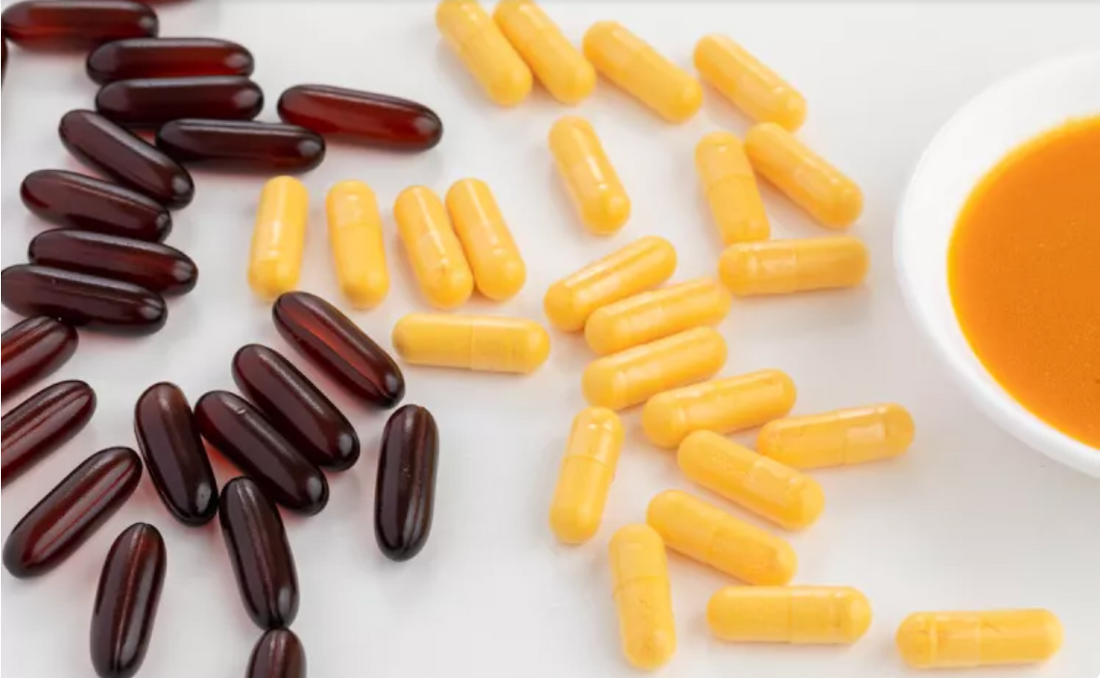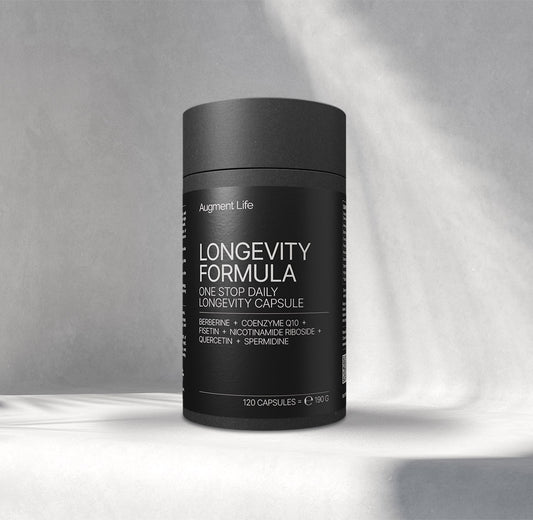Το συνένζυμο Q10, κοινώς γνωστό ως CoQ10, είναι μια ζωτικής σημασίας ένωση που διαδραματίζει σημαντικό ρόλο στην παραγωγή κυτταρικής ενέργειας. Ως ισχυρό αντιοξειδωτικό, υποστηρίζει τη συνολική υγεία και ευεξία.1
Ωστόσο, για να αποκομίσετε όλα τα οφέλη του, είναι σημαντικό να κατανοήσετε τον σωστό τρόπο ενσωμάτωσης του CoQ10 στη ρουτίνα σας. Σε αυτό το άρθρο, θα διερευνήσουμε τις διάφορες μορφές του CoQ10, τη συνιστώμενη δοσολογία και τις βέλτιστες πρακτικές για την πρόσληψή του.
1. Επιλέξτε τη σωστή μορφή
Το CoQ10 διατίθεται σε δύο βασικές μορφές - την ουβικινόνη και την ουβικινόλη. Η ουβικινόνη είναι η οξειδωμένη μορφή, ενώ η ουβικινόλη είναι η ανηγμένη, πιο εύκολα απορροφήσιμη μορφή.2 Χρειάζεται περαιτέρω έρευνα για τον προσδιορισμό της βέλτιστης μορφής CoQ10.3
Προσαρμόστε την επιλογή σας με βάση τις απαιτήσεις της υγείας σας και ζητήστε εξατομικευμένες συμβουλές από έναν επαγγελματία υγείας.
2. Ο συγχρονισμός είναι σημαντικός
Για βέλτιστη απορρόφηση, σκεφτείτε να λαμβάνετε το CoQ10 μαζί με ένα γεύμα που περιέχει υγιεινά λιπαρά. Δεδομένου ότι το CoQ10 είναι λιποδιαλυτό, η κατανάλωσή του μαζί με ένα γεύμα μπορεί να ενισχύσει τη βιοδιαθεσιμότητά του.4 Αυτή η απλή προσαρμογή μπορεί να επηρεάσει σημαντικά την αποτελεσματικότητα του συμπληρώματος.
3. Προσέξτε τις πιθανές παρενέργειες
Αν και οι παρενέργειες δεν είναι συνηθισμένες και συνήθως ήπιες, ορισμένοι άνθρωποι έχουν:5
- Πεπτικά συμπτώματα, όπως κοιλιακό άλγος, ναυτία, καούρα, διάρροια και έμετο,
- Συμπτώματα του κεντρικού νευρικού συστήματος, όπως ζάλη, ευαισθησία στο φως, ευερεθιστότητα και πονοκέφαλο,
- Κνησμός του δέρματος,
- Εξάνθημα,
- Απώλεια της όρεξης,
- Κόπωση,
- Συμπτώματα γρίπης.
4. Παρακολούθηση για πιθανές αλληλεπιδράσεις
Το CoQ10 μπορεί να αλληλεπιδράσει με διάφορα φάρμακα, συμπεριλαμβανομένων των αντιπηκτικών όπως η βαρφαρίνη, των αντιαιμοπεταλιακών φαρμάκων και ορισμένων αντιυπερτασικών. Επίσης, μπορεί να υπάρξουν αλληλεπιδράσεις με χημειοθεραπευτικά φάρμακα και φάρμακα που μειώνουν το σάκχαρο στο αίμα.6-7
Είναι μείζονος σημασίας να συμβουλευτείτε έναν πάροχο πρωτοβάθμιας υγειονομικής περίθαλψης για να αξιολογήσετε σε βάθος τις πιθανές αλληλεπιδράσεις με βάση το ατομικό προφίλ υγείας σας και τα συγκεκριμένα φάρμακα.
5. Λάβετε υπόψη τρόφιμα που είναι πλούσια σε CoQ10
Εκτός από τα συμπληρώματα, ενσωματώστε στη διατροφή σας τροφές πλούσιες σε CoQ10. Τρόφιμα όπως τα λιπαρά ψάρια, τα βιολογικά κρέατα και τα δημητριακά ολικής αλέσεως περιέχουν CoQ10 με φυσικό τρόπο.8 Μια ισορροπημένη διατροφή που περιλαμβάνει αυτά τα τρόφιμα μπορεί να συμπληρώσει το συμπλήρωμα CoQ10.
Τελική διατύπωση
Συνολικά, το συνένζυμο Q10 αποτελεί έναν πολύτιμο σύμμαχο στην προώθηση της κυτταρικής υγείας και ζωτικότητας. Η πλοήγηση στις αποχρώσεις της συμπλήρωσής του, από την επιλογή της σωστής μορφής μέχρι την πρόσληψή του από πηγές τροφίμων ολικής άλεσης, δίνει τη δυνατότητα στους ενδιαφερόμενους να αξιοποιήσουν πλήρως τις δυνατότητές τους.
Όπως καταλήγουμε, είναι επιτακτική ανάγκη να αναγνωρίσουμε τη συνέργεια μεταξύ των εμπεριστατωμένων επιλογών, της σωστής δοσολογίας και ενός ολοκληρωμένου τρόπου ζωής. Είτε αναζητάτε καρδιαγγειακή υποστήριξη είτε συνολική ευεξία, η συνετή ενσωμάτωση του CoQ10, υποστηριζόμενη από επαγγελματική καθοδήγηση, θέτει τις βάσεις για μια πιο υγιή και πιο ενεργητική ζωή.
Μάθετε περισσότερα για το CoQ10 και τα οφέλη του στο πρόσθετο άρθρο μας "Γιατί το CoenzymeQ10 λαμβάνεται ως συμπλήρωμα;".
Παραπομπές:
- Saini R. (2011). Coenzyme Q10: The essential nutrient. Journal of pharmacy & bioallied sciences, 3(3), 466–467. https://doi.org/10.4103/0975-7406.84471.
- Molyneux, S. L., Young, J. M., Florkowski, C. M., Lever, M., & George, P. M. (2008). Coenzyme Q10: is there a clinical role and a case for measurement? The Clinical biochemist. Reviews, 29(2), 71–82.
- Pastor-Maldonado, C. J., Suárez-Rivero, J. M., Povea-Cabello, S., Álvarez-Córdoba, M., Villalón-García, I., Munuera-Cabeza, M., Suárez-Carrillo, A., Talaverón-Rey, M., & Sánchez-Alcázar, J. A. (2020). Coenzyme Q10: Novel Formulations and Medical Trends. International journal of molecular sciences, 21(22), 8432. https://doi.org/10.3390/ijms21228432.
- Rd, J. K. M. (2023, February 14). COQ10 dosage: How much should you take per day? Healthline. https://www.healthline.com/nutrition/coq10-dosage#side-effects.
- Shane-McWhorter, L. (2023, December 6). Coenzyme Q10. MSD Manual Consumer Version. https://www.msdmanuals.com/home/special-subjects/dietary-supplements-and-vitamins/coenzyme-q10.
- Mohn, E. S., Kern, H. J., Saltzman, E., Mitmesser, S. H., & McKay, D. L. (2018). Evidence of Drug-Nutrient Interactions with Chronic Use of Commonly Prescribed Medications: An Update. Pharmaceutics, 10(1), 36. https://doi.org/10.3390/pharmaceutics10010036.
- Kanji, S., Seely, D., Yazdi, F., Tetzlaff, J., Singh, K., Tsertsvadze, A., Tricco, A. C., Sears, M. E., Ooi, T. C., Turek, M. A., Skidmore, B., & Ansari, M. T. (2012). Interactions of commonly used dietary supplements with cardiovascular drugs: a systematic review. Systematic reviews, 1, 26. https://doi.org/10.1186/2046-4053-1-26.
- Pravst, I., Zmitek, K., & Zmitek, J. (2010). Coenzyme Q10 contents in foods and fortification strategies. Critical reviews in food science and nutrition, 50(4), 269–280. https://doi.org/10.1080/10408390902773037.








